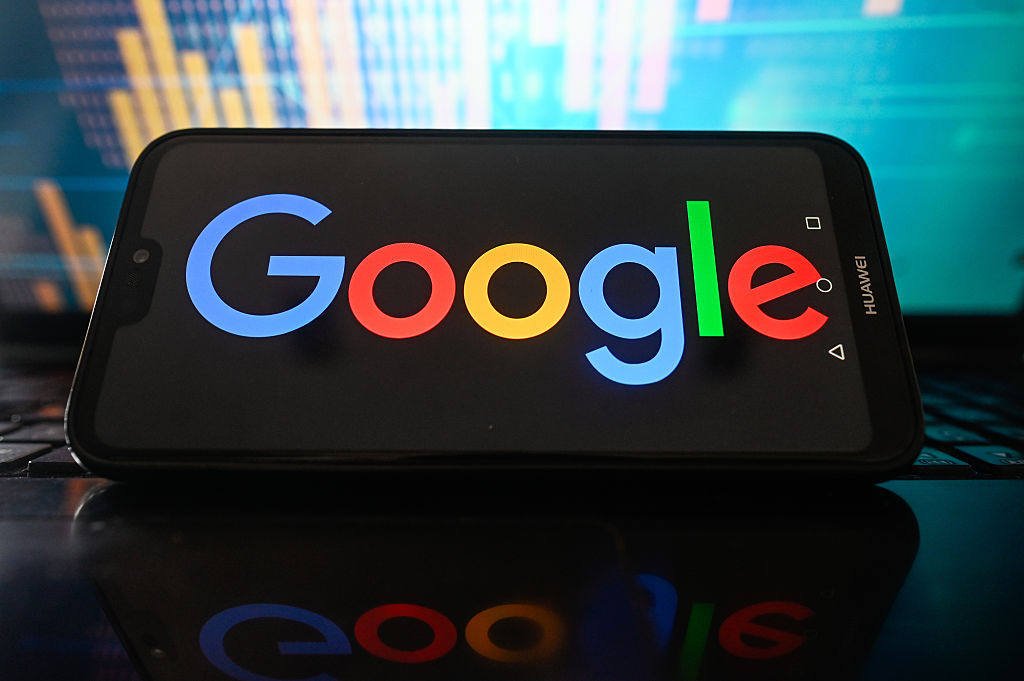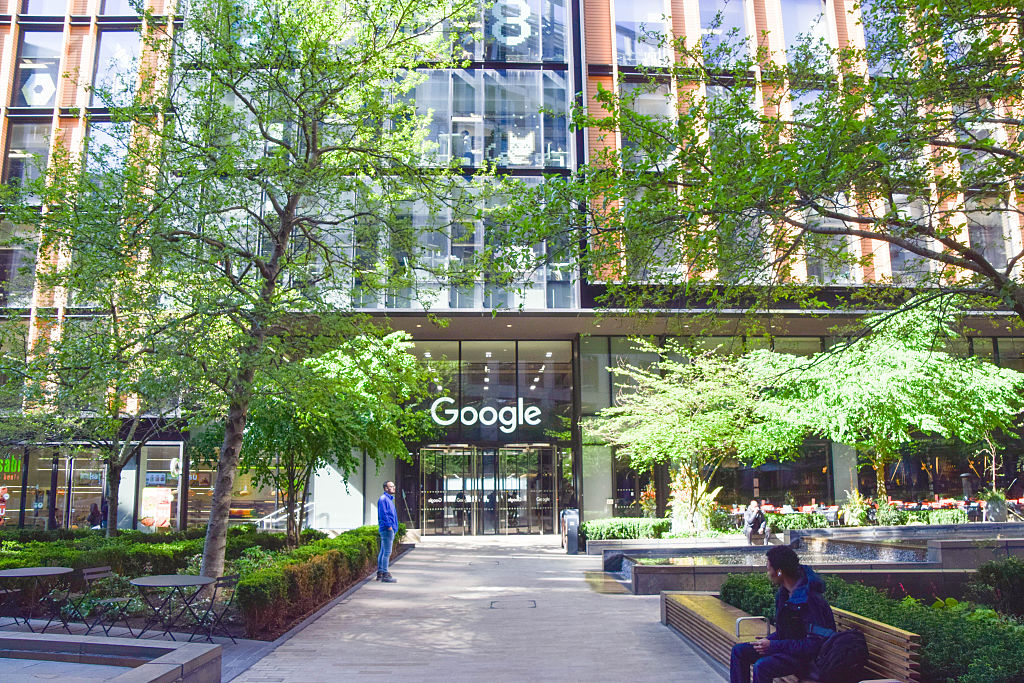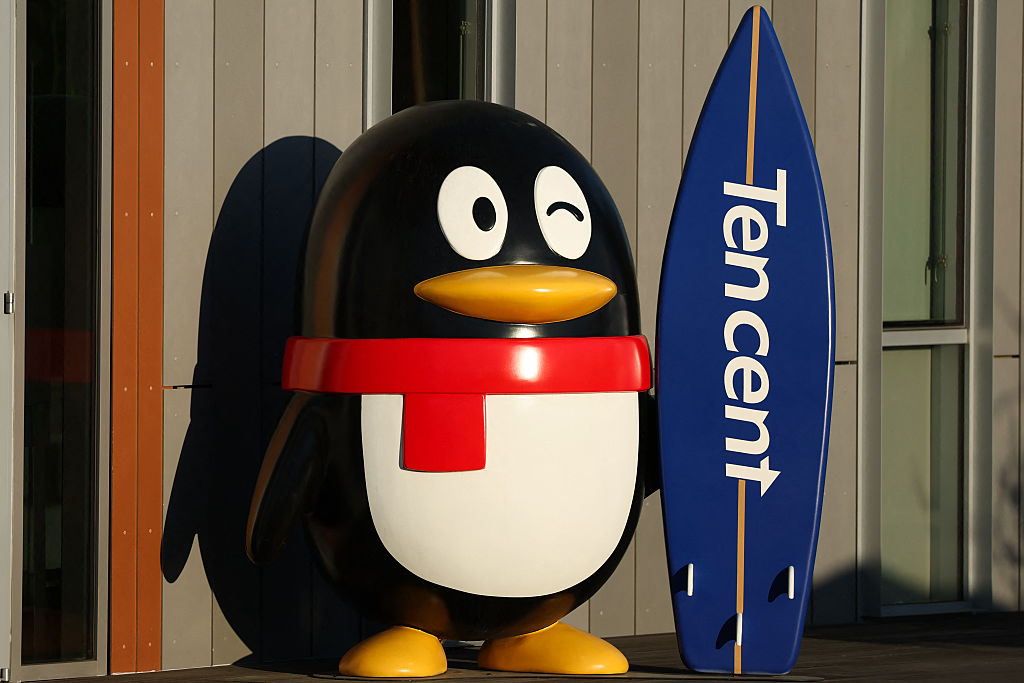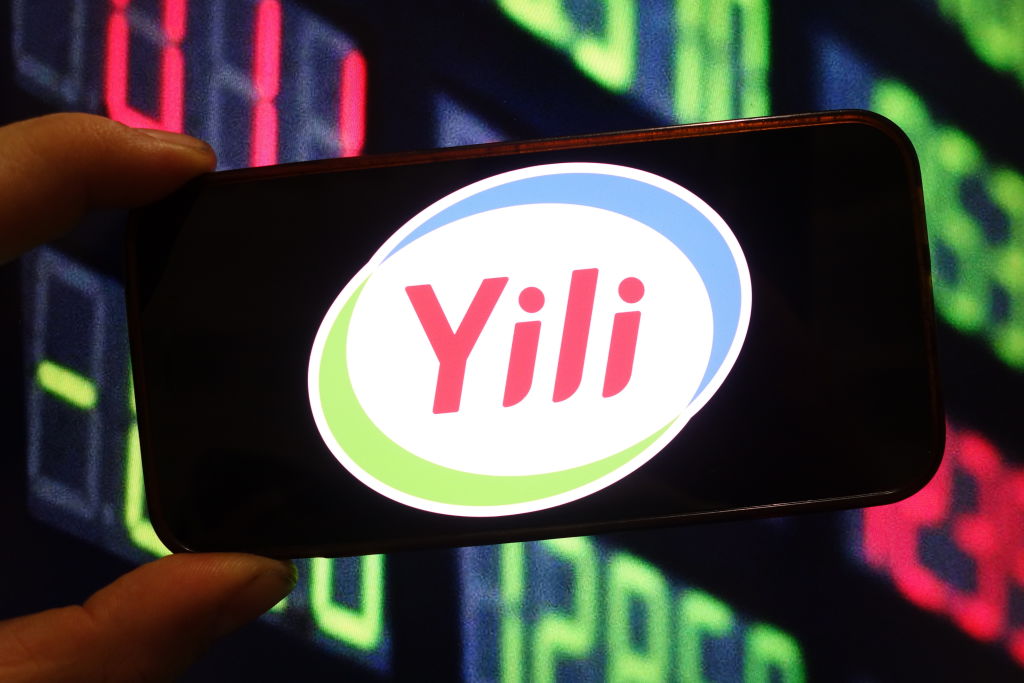Alphabet shares jump on Google Chrome decision
A US court has ruled that Google will not be forced to divest its Chrome browser, causing a boost for Alphabet’s share price


Get the latest financial news, insights and expert analysis from our award-winning MoneyWeek team, to help you understand what really matters when it comes to your finances.
You are now subscribed
Your newsletter sign-up was successful
Want to add more newsletters?

Twice daily
MoneyWeek
Get the latest financial news, insights and expert analysis from our award-winning MoneyWeek team, to help you understand what really matters when it comes to your finances.

Four times a week
Look After My Bills
Sign up to our free money-saving newsletter, filled with the latest news and expert advice to help you find the best tips and deals for managing your bills. Start saving today!
Shares in Alphabet (NASDAQ:GOOGL), Google’s parent company, gained 7% overnight following a US court ruling that the search giant will not be forced to sell off its Chrome browser.
The US Department of Justice has been pursuing a case against Google since 2020 arguing that the company actively maintains a monopoly over online search. It had been pushing for a forced breakup of Google’s empire, with Chrome and the Android mobile operating system both potentially subject to a forced divestment.
But Alphabet shares surged on news that US District Court Judge Amit Mehta, who had previously ruled that Google was operating as a monopoly, had stopped short of a structural breakup of the company when ruling on remedies.
MoneyWeek
Subscribe to MoneyWeek today and get your first six magazine issues absolutely FREE

Sign up to Money Morning
Don't miss the latest investment and personal finances news, market analysis, plus money-saving tips with our free twice-daily newsletter
Don't miss the latest investment and personal finances news, market analysis, plus money-saving tips with our free twice-daily newsletter
“Alphabet just dodged a regulatory bullet, and the market is cheering,” said Matt Britzman, senior equity analyst at Hargreaves Lansdown.
“Questions remain about the future of search, but with this legal cloud lifted, investors can refocus on growth and innovation.”
Concerns over a forced sale of Chrome had hung over Alphabet’s shares for years, pushing their valuation well below that of its Magnificent Seven colleagues.
Rivals such as DuckDuckGo had expressed their interest in purchasing Chrome should it become available. Perplexity AI, an artificial intelligence (AI) search start-up most recently valued at $18 billion, offered Google $34.5 billion to buy Chrome during August.
While Perplexity’s head of communications said of the offer “this isn’t a joke. We’re good at this,” the FT cited a person familiar with the matter as saying Alphabet did not view the offer as serious.
Serious or not, the bids underscored the intense interest in Chrome and the strategic importance of retaining the browser for Google and Alphabet.
What the rulings mean for Alphabet and Google
While the structure of Google’s empire can stay intact following Judge Mehta’s ruling, there will be some curbs on its business aimed at limiting its monopolistic practices.
Google will not be allowed to have exclusive search agreements. It will also need to share more search data with its competitors, including parts of its search index which maps every website on the internet.
Certain competitors will also be allowed to display Google search results as their own.
Google expressed concerns in a statement following the ruling that data sharing “will impact our users and their privacy, and we’re reviewing the decision closely”. It is likely to appeal against this aspect of the ruling, which could mean the case ends up in the Supreme Court of the US.

Google's UK headquarters in King's Cross
Yesterday’s ruling is also not necessarily the end of the road as far as a potential Google breakup is concerned. A separate case, alleging that Google is illegally monopolising online advertising technology, will reach the remedies phase later in September.
How AI changed the Google monopoly debate
Mehta acknowledged in the ruling that the emergence of generative AI (genAI) had a major impact on the remedies proposed.
“The emergence of genAI changed the course of this case,” said Mehta in his ruling.
Much of the market pessimism surrounding Alphabet has centred on fears that its core Search business could suffer as a result of people querying AI chatbots instead of its search engine.
“For Alphabet, the timing couldn’t be better,” said Britzman. “The market had prematurely written the company off in the AI race, a view that looked short-sighted. With cutting-edge models and unmatched distribution, Alphabet is poised to dominate if it can execute well.”
“Concerns around the impact of genAI on the business are fading, with Alphabet validating its ability to navigate this period of transition,” said Scott Devitt, managing director, equity research at Wedbush Securities. “Management is repositioning the business as a winner in the AI space, with strong demand trends and an acceleration in Cloud growth.”
What the Google antitrust decision means for Apple
Shares in Apple (NASDAQ:AAPL) also responded positively to the news, gaining 3% overnight.
The ruling means Google will still be able to pay Apple to pre-load Chrome on its devices.
“Apple emerged as a quiet winner. Its search deal with Alphabet, worth roughly $20 billion annually, remains intact, and the renegotiation window plus the end of exclusivity clauses could give Apple more leverage and optionality down the line,” said Britzman.
This also potentially opens the door for further collaborations between the two businesses.
“We now see a green light for a bigger Gemini AI partnership between Apple and Google with this DOJ case now in the rear view mirror,” said Dan Ives, global head of technology research at Wedbush Securities.
Should you buy Alphabet’s shares?
Alphabet’s shares traded at around 22 times its expected earnings over the next 12 months prior to Judge Mehta’s ruling. This is notably below the level that other Magnificent Seven stocks trade: the next cheapest by this metric is Meta (NASDAQ:META) at around 28 times projected earnings.
“We believe… the discount relative to peers is unwarranted,” wrote Wedbush analysts. “We think focus will now shift towards the positioning of Google relative to megacap peers.”
Wedbush raised its price target for Alphabet’s shares to $245, implying 16% gains from yesterday’s close.
Get the latest financial news, insights and expert analysis from our award-winning MoneyWeek team, to help you understand what really matters when it comes to your finances.

Dan is a financial journalist who, prior to joining MoneyWeek, spent five years writing for OPTO, an investment magazine focused on growth and technology stocks, ETFs and thematic investing.
Before becoming a writer, Dan spent six years working in talent acquisition in the tech sector, including for credit scoring start-up ClearScore where he first developed an interest in personal finance.
Dan studied Social Anthropology and Management at Sidney Sussex College and the Judge Business School, Cambridge University. Outside finance, he also enjoys travel writing, and has edited two published travel books.
-
 Should you buy an active ETF?
Should you buy an active ETF?ETFs are often mischaracterised as passive products, but they can be a convenient way to add active management to your portfolio
-
 Power up your pension before 5 April – easy ways to save before the tax year end
Power up your pension before 5 April – easy ways to save before the tax year endWith the end of the tax year looming, pension savers currently have a window to review and maximise what’s going into their retirement funds – we look at how
-
 Three key winners from the AI boom and beyond
Three key winners from the AI boom and beyondJames Harries of the Trojan Global Income Fund picks three promising stocks that transcend the hype of the AI boom
-
 'AI is the real deal – it will change our world in more ways than we can imagine'
'AI is the real deal – it will change our world in more ways than we can imagine'Interview Rob Arnott of Research Affiliates talks to Andrew Van Sickle about the AI bubble, the impact of tariffs on inflation and the outlook for gold and China
-
 Three promising emerging-market stocks to diversify your portfolio
Three promising emerging-market stocks to diversify your portfolioOpinion Omar Negyal, portfolio manager, JPMorgan Global Emerging Markets Income Trust, highlights three emerging-market stocks where he’d put his money
-
 New year, same market forecasts
New year, same market forecastsForecasts from banks and brokers are as bullish as ever this year, but there is less conviction about the US, says Cris Sholto Heaton
-
 How to profit from the UK leisure sector in 2026
How to profit from the UK leisure sector in 2026The UK leisure sector had a straitened few years but now have cash in the bank and are ready to splurge. The sector is best placed to profit
-
 Metals and AI power emerging markets
Metals and AI power emerging marketsThis year’s big emerging market winners have tended to offer exposure to one of 2025’s two winning trends – AI-focused tech and the global metals rally
-
 Quality emerging market companies with consistent returns
Quality emerging market companies with consistent returnsOpinion Mark Hammonds, portfolio manager at Guinness Global Investors, selects three emerging market stocks where he'd put his money
-
 Coreweave is on borrowed time
Coreweave is on borrowed timeAI infrastructure firm Coreweave is heading for trouble and is absurdly pricey, says Matthew Partridge